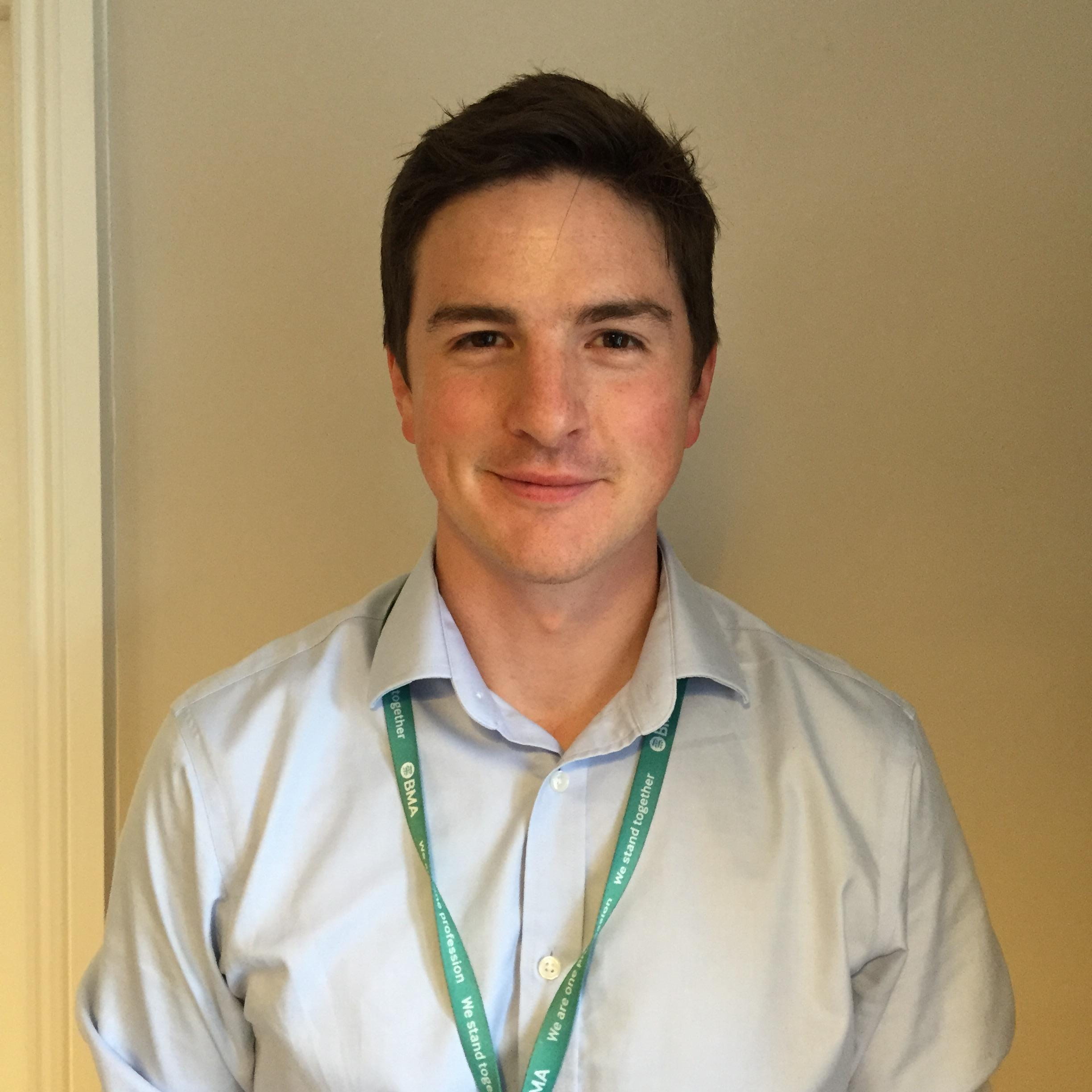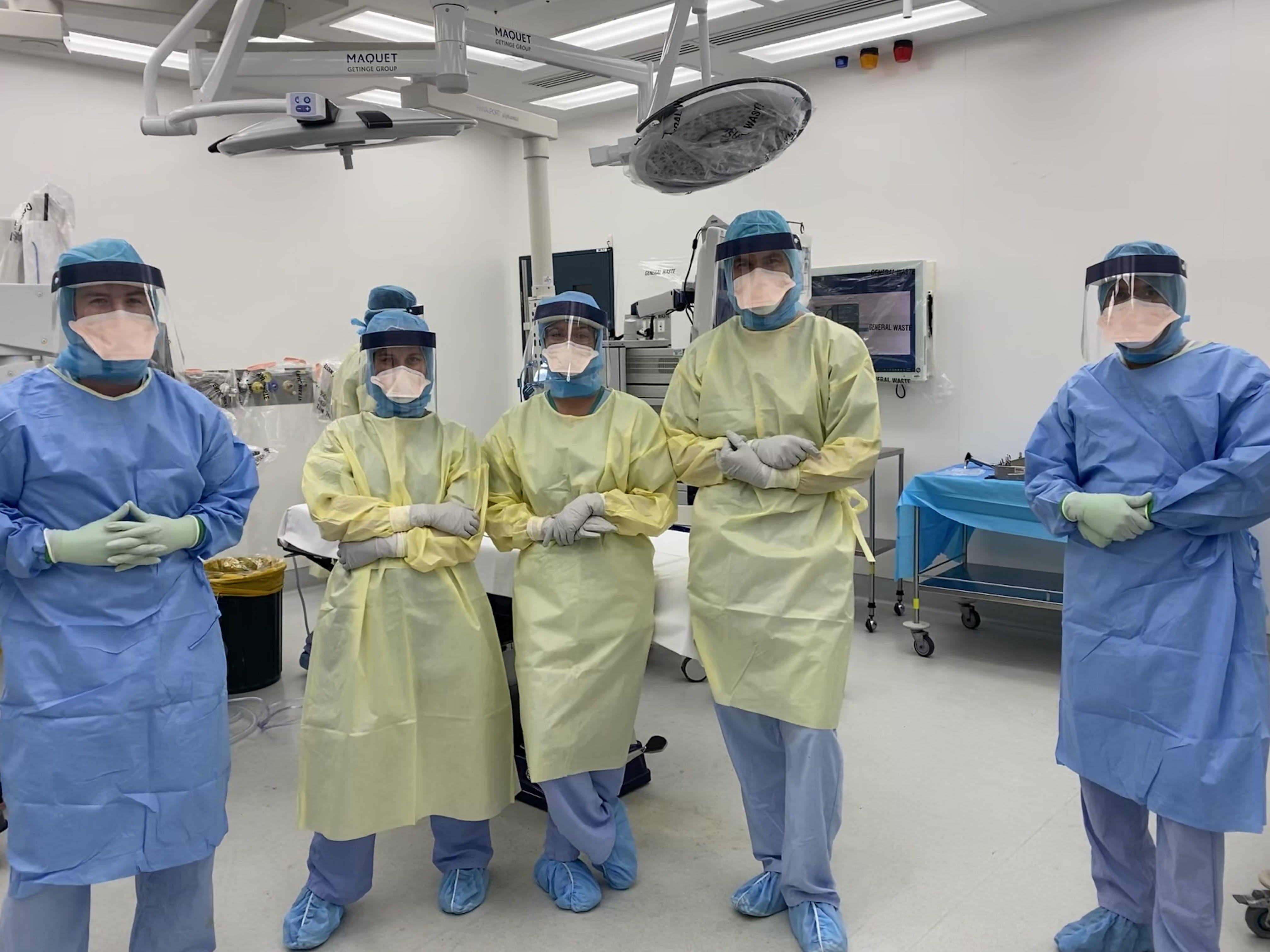The view from Australia

17 Sep 2020
Mr David Black
David Black is an ENT surgeon, currently on a head and neck fellowship at Princess Alexandra Hospital in Brisbane, Australia. Living and working over 10,000 miles from home, Mr Black reflects on his separation anxiety from his family, friends and the NHS as the UK was hit by COVID-19.
I came to Brisbane from Bristol twelve months ago for my head and neck fellowship; to plunge deep into resections in the operating theatre, and deep into the surf at the weekends. Over five months ago, as I came back from two weeks on a boat in the Whitsundays, I was really living that dream. That was until I turned my phone back on, read BBC news, and checked WhatsApps from friends in London. What had seemed a distant threat in Wuhan when I left, was now on the doorstep. Of my closest medical school friends, two Intensive Care Unit (ICU) consultants looked fully emotionally drained already, the plastic surgeon was applying for shifts at the Nightingale, the rheumatologist was now a COVID-19 registrar. I called my parents in London and urged them both to stay indoors. Dad is eighty with a history of pulmonary embolism, not a great ICU candidate if he got into trouble.
In Brisbane, I headed back to work where a hurried series of meetings between theatres, hospital management, and internal departments readied the hospital for the fifty thousand expected extra ICU bed days across Queensland over the next nine months. We set out protocols, practised PPE, closed our head and neck ward, pushed laryngeal laser cases to radiotherapy, readied to split the team and lose our juniors. We dug our trenches and braced ourselves for the coming battle, and then… nothing.
Well, not nothing; twenty cases in the first two weeks, three in ICU. Five weeks later, all three of those ICU cases were successfully extubated and on the wards. The second ICU closed before it got a patient. Australia moved quickly to stop international and interstate travel. We had the Chinese, Italian and UK experiences to learn from and clearly there hadn’t been the unseen spread experienced by Italy and home. Citizens returning were quarantined in hotels for two weeks and lockdown was swift and effective. After several months, pubs, restaurants and communal spaces are opening up and life is drifting back to normality (at least in Queensland, as Melbourne and Victoria are still struggling). After a few weeks of battling for reduced theatre space, I was able to go back to my usual operating, a privilege not shared by many at home. I can continue my fellowship and patients can get the right treatment, not just the one circumstances demand. I can even speak to my family and friends more. With many UK residents at home, people are reachable before noon BST when I get home from work, and I’m no longer the only one who has to join virtually.
Except, as the Australian and UK experiences drifted further apart, and the UK death toll continued to rise, it became harder to watch from the other side of the world. This is the first year of my professional life that I have not worked in the NHS – my friend and tormentor for twelve years. The first time I’ve not been a part of that frazzled band of brothers and sisters being cheered on at eight o’clock on a Thursday. It felt wrong not to be a part of it as it faced its greatest challenge. We started to question whether we were right to stay in Australia.
One more ENT surgeon was not what the NHS needed as the crisis took hold, but my partner (dual trained in anaesthetics and ICU) paced our apartment and checked obsessively for flights back home. Could we even get back if we wanted? A few weeks’ wait for a flight followed by a couple in quarantine? Without easy access to international travel, Australia suddenly felt as far away as it really is.
So far, friends and family at home have remained well. Incredibly, of my close medical friends, only one has tested positive up to this point, a testament to effective PPE. Dad and mum remain happy in isolation (now partially eased), and we’re probably speaking more regularly than at any time since I started training. In fact, with large numbers of people staying indoors and forced onto video calls, the last few months have probably been the least it has ever mattered to feel connected from the other side of the world.
If you had told me a year ago that my greatest separation anxiety would be from the NHS, I wouldn’t have believed you – but then the same can be said for most of 2020.
'We dug our trenches and braced ourselves for the coming battle'
This blog is from our series COVID-19: views from the NHS frontline. If you would like to write a blog for us, please contact content@rcseng.ac.uk.

